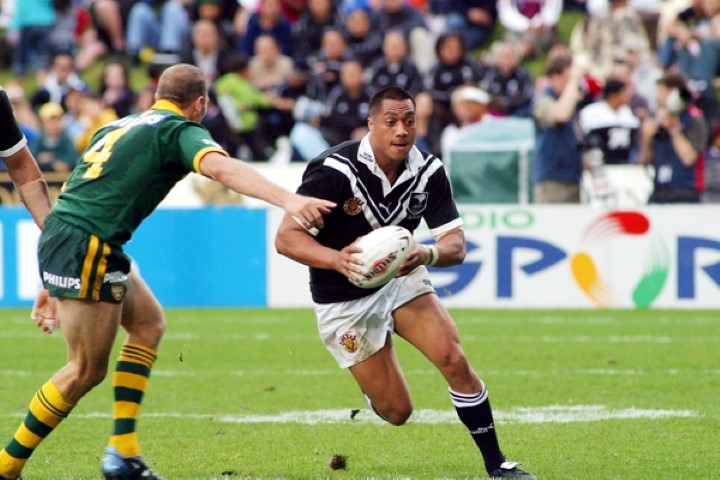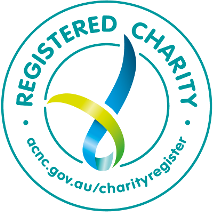Athlete Voices: Sione Faumuina (NRL)
It has been seven years since my professional rugby league career ended and I must say, I am only now starting to realise what it is I actually want to do. However, I still miss some of the perks that came with being a pro athlete in the NRL. No more free clothing, shoes, meals and sponsored products, movie premiers, six weeks annual leave, compulsory day off during the week, bar tabs, VIP parking at the airport and the list goes on.

During my career, I had access to education programs but didn’t utilise it because, let’s face it, what was the point if I had no idea what career path to take? Since transitioning from professional sport and back into the ‘real world’, I have had a host of jobs, some of which still make me cringe just thinking about them.
Here are my 8 jobs in 7 years since finishing my rugby league career:
1. Bottle shop attendant
2. Self-employed cleaner
3. Concrete Labourer
4. Trades Assistant
5. Electrical Apprentice
6. Laundromat attendant/Cleaner (Opened a laundromat which still runs today)
7. Insurance Consultant
8. Youth facilitator
I had a voice in my head that kept saying “you have no formal qualifications or work experience, here are the jobs for you”. The first four years of my life after rugby league were pretty rough. I had endured a not so pleasant ride during my career due to my off-field alcohol indiscretions which were still prevalent in my life during this time. It wasn’t until I kicked the booze in 2014 and started work on my autobiography that things started to happen or should I say, make sense.
I released my autobiography in November 2016 and during the process of writing it I was reminded of what I was passionate about growing up. Entertainment and performing, economics and a genuine love for all sports.
Then I reflected on my professional career and basically focused on all the positives that happened. I represented my country, which meant I had played at the highest level in my sport. I also played alongside the greatest rugby league player of the modern era.
I started to unravel events and pin-point areas of interest. I identified skills and traits that were transferable into the workplace or business. Now as I write this article, I am on a journey to creating the life that I want based on my passions and strengths. But more importantly, my life experiences which I believe is the key for professional athletes in transitioning into a career or starting their own business.
Identify your strengths and start reflecting back on your life. What were you passionate about outside of sport, subjects at school which you excelled at, any hobbies you had as a kid and positive comments made by people about you? Growing up I enjoyed all sports but I also loved entertaining and my favorite subject at school was economics. Today I volunteer at a local radio station and deliver presentations and speeches about my journey. I am also a small business owner while still working full time.
Building a Support network of people in area’s that you may think you want to get into. After identifying your strengths and aligning those with what you’re passionate about, you will start to get a clearer picture of what you may be interested in. I have mentors in different fields to support me and assist me. This is important because although we may have the right skills for that career, we may lack the hand’s on experience. Having a mentor allows you to gain valuable knowledge to make up for it.
After you have identified your strengths and aligned that with your passions or purpose, it’s time to Implement. This is key to a successful transition and you can choose to allocate 1 hour a week, 5 hours a week or even 5 hours a month. You need to get out there and start experiencing “work”. The beauty here is that you can use your profile to land some great work experience. All you are really doing is testing the waters to see if you dive in or carry on walking to the next one.
I have identified my strengths and purpose and I am currently on a journey to designing my own life. My ideal job isn’t out there so I’m creating it and all this happened because I followed a simple step of identifying my strengths and aligning it with what I am passionate about. Then connecting with people in those areas for support and implementing an action plan.
Athletes have access to multi-millionaires, CEO’s of large corporations, life coaches, media outlets, news networks. If I had my time again I would be utilizing every network my sporting organization has or use my profile to connect. It’s like a buffet of work experience; “I don’t like that but I do enjoy this”. I work a full-time job while juggling my passions on the side, getting work experience and meeting with mentors.
My advice to current professional athletes would be this;
Start planning for the transition, identify your strengths and skill set and start the process of aligning yourself with mentors and advisors. The profile you have can be used to launch your transition out of professional sport and into a career or a business you may want to start. Imagine having a clear plan and goal for the transition and how much clarity it would mean while still competing? Now that would be something.
Sione Faumuina
Check out Sione’s book The Second Phase detailing his life after the NRL and how he took on the challenge of life after sport.

